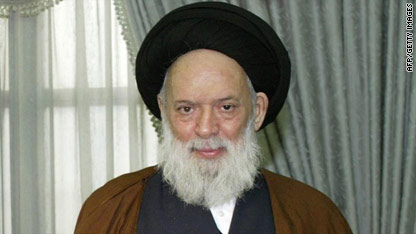An editor at CNN who sent out a Tweet expressing regret over the death of Hezbollah’s spiritual adviser paid for the Tweet with her job.

Fadlallah died Sunday in a hospital in Beirut, Lebanon.
When Mideast Editor Octavia Nasr tweeted about the death of Ayatollah Muhammad Hussein Fadlallah, Hezbollah’s spiritual advisor she said, “Sad to hear of the passing of Sayyed Mohammed Hussein Fadlallah… One of Hezbollah’s giants I respect a lot.”
An outcry over the comment ensued.
In a July 6 letter, the Anti-Defamation League wrote to CNN about the matter, saying:
Fadlallah, designated by the U.S. Department of Treasury as a specially designated terrorist, disseminated numerous fatawa’ supporting terrorist operations and was a vocal supporter of terrorism against Israeli targets.
It is clearly an impropriety for a CNN journalist/editor to express such a partisan viewpoint as Ms. Nasr did in her tweet.
The same day, Nasr blogged about the Tweet, attempting to explain that her comment was misunderstood and taken out of context.
It was an error of judgment for me to write such a simplistic comment and I’m sorry because it conveyed that I supported Fadlallah’s life’s work. That’s not the case at all.
Here’s what I should have conveyed more fully:
I used the words “respect” and “sad” because to me as a Middle Eastern woman, Fadlallah took a contrarian and pioneering stand among Shia clerics on woman’s rights. He called for the abolition of the tribal system of “honor killing.” He called the practice primitive and non-productive. He warned Muslim men that abuse of women was against Islam.
Whether Nasr intended her comments to be controversial or not, the chain of events resulting from a Tweet clearly show that caution is the best recipe for journalists when it comes to Twitter.
As Nasr said in her blog posting on the issue for CNN, “140 characters should not be used to comment on controversial or sensitive issues, especially those dealing with the Middle East.”